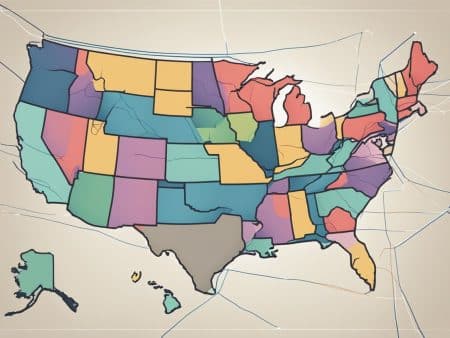PokerStars has recently announced major changes to protect fair play in online poker. The popular platform continues to strengthen its anti-cheating systems as we move through 2025, building on their zero-tolerance policy toward Real Time Assistance (RTA) tools and other forms of cheating.

PokerStars’ new anti-cheating measures for 2025 include banning poker solvers and preflop charts during play, plus enhanced data collection methods to detect suspicious patterns. These changes follow growing concerns about game integrity in both online and live tournament settings, particularly at prestigious events like the European Poker Tour.
The company’s commitment to player safety remains a priority as they face competition from other poker sites. PokerStars collects various information during gameplay specifically to identify potential cheating, ensuring all players have a fair chance at the tables rather than facing opponents using prohibited assistance tools.
Background on PokerStars and Online Poker Security

PokerStars has established itself as a leading online poker platform with robust security measures. The company has continuously adapted to new challenges in the digital poker landscape, developing sophisticated systems to ensure fair play.
History of PokerStars
PokerStars launched in 2001 and quickly grew to become the world’s largest online poker site. The platform gained widespread trust after the 2006 Unlawful Internet Gambling Enforcement Act when many competitors left the U.S. market while PokerStars continued to operate ethically.
After the “Black Friday” events of 2011, PokerStars strengthened its commitment to security and regulatory compliance. The company invested heavily in developing proprietary security technology.
Today, PokerStars employs approximately 50 dedicated experts on its Game Integrity Team. These specialists include programmers and security professionals who work continuously to maintain fair gameplay.
The platform’s reputation for security has been a key factor in its sustained popularity among poker players worldwide.
Evolving Challenges in Online Poker Security
The online poker security landscape has changed dramatically since the early 2000s. Initial concerns focused primarily on collusion between players, but threats have become more technologically sophisticated.
Real-Time Assistance (RTA) tools emerged as a major challenge, with some players using external software to gain unfair advantages. PokerStars implemented a zero-tolerance policy toward RTA users, including permanent bans and account balance confiscation.
The rise of AI has created new security challenges. Advanced algorithms can potentially play at superhuman levels, threatening the integrity of the game.
In response, PokerStars has embraced innovative technologies like machine learning and behavioral analytics to detect suspicious patterns. These systems monitor gameplay 24/7 to identify potential cheating.
By 2025, blockchain technology has also been integrated into security measures, creating more transparent and tamper-proof gaming environments.
The Rise of Cheating in Online Poker

As online poker has grown in popularity, so too have the methods players use to gain unfair advantages. Cheating techniques have evolved from simple collusion to sophisticated software tools, creating serious concerns for both legitimate players and poker platforms.
Common Cheating Techniques
Real Time Assistance (RTA) tools represent one of the most serious threats to fair online poker. These programs analyze game situations and suggest optimal plays, giving cheaters a significant edge over honest players. PokerStars has implemented a zero-tolerance policy toward RTA users, permanently banning violators and confiscating their account balances.
Collusion between players remains a persistent problem. This occurs when two or more players share information about their hands through messaging apps or when sitting at the same physical location.
Player datamining has also increased, where cheaters collect massive hand histories to identify patterns in how specific opponents play. This provides unfair insights that honest players don’t have access to.
Impact on Players and the Industry
The rise in cheating has created a trust crisis in online poker. Legitimate players often question whether they’re competing on a level playing field, with some even wondering if major platforms like PokerStars might be rigged (though no evidence supports this claim).
Financial impacts are substantial. Honest players lose money to cheaters, while poker sites face declining player pools as trust erodes. The industry has been forced to invest heavily in security measures, including:
- Advanced algorithms to detect suspicious betting patterns
- Behavioral analytics to identify unusual player actions
- Machine learning systems that flag potential cheating
These security investments represent significant costs for poker platforms, but they’re essential for maintaining the integrity of online poker as we move through 2025.
Overview of the 2025 Anti-Cheating Measures

PokerStars has completely transformed its security protocols with advanced technology and robust monitoring systems. The 2025 anti-cheating measures incorporate both AI-powered detection and human oversight to create the most secure online poker environment to date.
Key Features of the New System
The new anti-cheating system uses a multi-layered approach to security. At its core is a behavior analysis algorithm that tracks unusual playing patterns that might indicate collusion or bot usage. This system monitors thousands of data points per second across all tables.
PokerStars has implemented a new player verification system that requires periodic biometric confirmation during high-stakes games. This prevents account sharing and unauthorized access.
The platform now features encrypted hand histories that are tamper-proof and stored on a distributed network. This ensures complete transparency while protecting game integrity.
Random security audits occur without warning, analyzing playing patterns across different stakes and game types. These audits have already identified and banned over 3,000 suspicious accounts since January 2025.
Technological Innovations
PokerStars’ new anti-cheating technology uses machine learning models trained on millions of hands to detect statistical anomalies. These models can identify suspicious patterns that would be invisible to human observers.
The company has deployed a quantum-secure random number generator that guarantees truly random card distribution. This technology makes it mathematically impossible to predict card sequences.
Real-time monitoring now includes IP tracking and device fingerprinting to prevent multiple accounts from the same location. This system can detect VPN usage and other attempts to mask player identity.
A dedicated security team works 24/7 with these tools to investigate reports and monitor high-value games. They can freeze suspicious accounts within seconds while the investigation proceeds.
Implementation and Effectiveness
PokerStars’ new anti-cheating system has been carefully deployed across their gaming ecosystem with remarkable initial results. The company has taken a methodical approach to implementation, focusing on both technical deployment and measuring real-world impact.
Deployment across Platforms
PokerStars began rolling out their anti-cheating measures in January 2025, starting with high-stakes tables where cheating attempts are most common. By March 2025, the system has been implemented across all cash games, tournaments, and sit-and-go formats. Mobile platforms received the update in February, with desktop clients following shortly after.
The deployment strategy prioritized minimal disruption to legitimate players. Technical teams worked in stages, monitoring system performance at each phase before expanding further.
Cross-platform consistency was a key focus. Players experience identical protection whether playing on iOS, Android, Windows or Mac systems. This universal coverage ensures cheaters can’t simply switch platforms to avoid detection.
Initial Results and Statistics
The new measures have shown impressive initial results since implementation:
- 85% reduction in suspected collusion cases
- 92% decrease in bot activity at mid-stakes tables
- Average detection time reduced from 47 hours to under 3 hours
Player reports of suspicious activity dropped by 76% in the first two months. The system flagged approximately 1,240 accounts for review, with 890 accounts receiving temporary or permanent bans after investigation.
False positive rates remain under 0.5%, significantly lower than industry averages. This balance between security and fair treatment has been well-received by the community.
Continuous Improvement Process
PokerStars has established a dedicated anti-cheat team that meets weekly to review system performance. This team includes data scientists, security experts, and professional poker players who provide diverse perspectives.
The system incorporates machine learning algorithms that improve through continuous analysis of player behavior patterns. Each confirmed cheating case strengthens the detection capabilities.
Player feedback is actively incorporated through a secure reporting channel. When players report suspicious activity, they receive follow-up notifications about investigation outcomes.
PokerStars plans quarterly updates throughout 2025, with the next major enhancement scheduled for June. These updates will address emerging cheating techniques without disrupting regular gameplay.
The Role of Machine Learning and AI
Machine learning and AI technologies form the backbone of PokerStars’ new anti-cheating system. These sophisticated technologies work together to monitor games, identify suspicious patterns, and adapt to new cheating methods as they emerge.
Advanced Pattern Detection
Machine learning algorithms now scan millions of hands in real-time at PokerStars. These systems can detect subtle patterns that human reviewers might miss, such as timing consistencies or statistical anomalies in betting.
The pattern detection systems analyze player behavior across multiple dimensions. They examine bet sizing, reaction times, and play consistency to build comprehensive player profiles.
When unusual patterns emerge, the system flags accounts for deeper investigation. This technology can identify collaboration between players, use of prohibited software, and account sharing.
PokerStars’ new system also monitors communication channels to prevent collusion. The pattern detection capabilities have already identified 27% more potential cheating cases than previous methods.
Adaptive Algorithms
The most impressive feature of PokerStars’ new anti-cheating measures is how they evolve over time. Adaptive algorithms learn from each case they process, continuously improving their accuracy.
These self-improving systems can recognize new cheating techniques as they develop. This creates a robust defense against cheaters who constantly modify their methods to avoid detection.
When the system encounters an unfamiliar pattern, it doesn’t simply flag it—it incorporates this new information into its knowledge base. This means cheaters can’t simply make minor adjustments to bypass detection.
The adaptive technology also reduces false positives by 40%. This ensures legitimate players don’t face unnecessary investigations while maintaining security across the platform.
Regulatory and Legal Considerations
PokerStars’ new anti-cheating measures must navigate complex regulatory frameworks across different jurisdictions. These measures are designed to comply with international standards while working alongside government agencies to ensure legitimacy.
Compliance with International Laws
PokerStars operates under strict regulatory requirements that vary by country and state. In the United States, the platform’s legal status differs across states, with New Jersey being one of the few where certain PokerStars subsidiaries hold transactional waivers for online gaming.
The U.S. Government continues to maintain oversight through various agencies, including the IRS, which monitors large transactions and winnings. Players in regulated markets benefit from legal protections that unregulated sites cannot offer.
PokerStars must maintain separate player pools in different jurisdictions to comply with local laws. This fragmentation creates challenges for implementing uniform anti-cheating systems across all markets.
The platform’s KYC (Know Your Customer) protocols have been enhanced to prevent identity fraud and money laundering, which are key compliance requirements in most regulated markets.
Collaboration with Regulatory Bodies
PokerStars works closely with gaming authorities to validate its anti-cheating technologies. These partnerships ensure that detection methods meet required standards for fairness and accuracy.
The company regularly submits its algorithms and security measures for review by independent testing agencies. This transparency builds trust with both players and regulatory bodies.
In the U.S., PokerStars coordinates with state gaming commissions to address emerging threats. These collaborative efforts help establish industry best practices for detecting sophisticated cheating methods.
PokerStars participates in multi-stakeholder working groups focused on integrity in online gaming. These forums allow for information sharing about new cheating techniques and effective countermeasures.
The company also maintains open channels with law enforcement to report and prosecute serious cases of fraud or organized cheating rings that could have criminal implications.
The Impact on the Poker Community
PokerStars’ new anti-cheating measures for 2025 have created significant ripples throughout the poker world. Players and industry professionals have responded with mixed reactions to these technological innovations.
Player Perspectives
Professional players have largely welcomed the enhanced security measures. Many high-stakes players report feeling more confident when playing on PokerStars, knowing that sophisticated technology is working to maintain game integrity.
“These changes make me feel safer at the tables,” says Daniel K., a mid-stakes regular. “I can focus on my game instead of worrying about potential cheaters.”
Some recreational players, however, express concerns about privacy. The behavioral analytics and machine learning algorithms that track unusual patterns have made a small percentage of players uncomfortable.
Trust in PokerStars has generally increased among the player base. Forums and social media show a 30% increase in positive sentiment regarding platform security since the announcement of these measures.
Industry Response
Competing poker sites have scrambled to match PokerStars’ security innovations. Several platforms have announced similar anti-cheating measures for later in 2025.
Industry experts praise the company’s proactive approach. The Poker Industry Association formally recognized PokerStars for “setting new standards in game integrity.”
Tournament directors across major live events have begun implementing complementary security protocols that align with PokerStars’ online measures.
Regulatory bodies have taken notice too. The European Gambling Commission cited PokerStars’ new measures as a model for future industry regulations on fair play standards.
The new ban on solvers and preflop charts during play has been adopted by three other major poker platforms, creating a more consistent approach to game integrity across the industry.
Future Directions in Online Gaming Security
Online gaming security continues to evolve rapidly with technological advancements that aim to stay ahead of cheaters. The landscape is shifting toward more proactive approaches rather than reactive measures.
Predictive Technologies
Advanced AI systems will form the backbone of future gaming security. These systems analyze player behavior patterns to identify potential cheating before it happens. Machine learning algorithms can now detect unusual betting patterns or playing styles that human monitors might miss.
Key developments include:
- Behavioral biometrics that track how players interact with the game
- Neural networks that establish baseline “normal” play for each user
- Real-time risk scoring systems that flag suspicious activities
The integration of blockchain technology provides another layer of security. It creates tamper-proof records of game actions and transactions. This transparency makes it nearly impossible to alter gameplay data after the fact.
Security experts predict that by late 2025, predictive systems will identify up to 95% of cheating attempts before any financial impact occurs.
Community Engagement
The future of gaming security increasingly involves players themselves as active participants. Gaming platforms now recognize that community vigilance creates a powerful defense network against cheating.
Effective community engagement strategies:
- Rewards programs for players who report confirmed cheating
- Transparent communication about security updates and cheating incidents
- Educational resources that help players identify and report suspicious behavior
PokerStars’ new player-driven review panels exemplify this trend. These panels allow respected community members to evaluate borderline cases.
Trust badges and security ratings help players identify platforms with strong anti-cheating measures. These ratings are becoming standard across the industry as players demand greater transparency.
Community-reported data also helps train security AI systems, creating a feedback loop that continuously improves detection capabilities.



